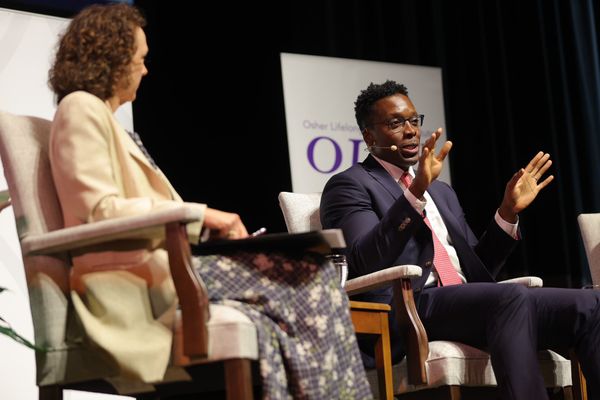The Riley Institute’s StraightTalk 2023 CLP series had a singular goal: to navigate the increasingly volatile political landscape with the impetus to “Defend Democracy.” This being no easy task, Furman’s presentation of consistently articulate and civil speakers was admirable.
With each night bringing speakers from vastly different backgrounds, Furman successfully provided a space for those with differing opinions to express themselves without the toxicity and polarization that is the hallmark of modern online discourse.
The interactive, discussion-based format was a perfect way to talk about open discourse whilst modeling it. However, as each event came and went, I couldn’t stop two questions from reverberating in my head. Is there a way for the Riley Institute to put on a truly non-partisan string of political CLPs? How does non-partisanship affect this “open” discourse?
Personal political bias among the speakers is unavoidable — a fact that became increasingly clear throughout the series. At the first CLP, “The Weakening of Democracy in America,” the question of bias was posed to speakers Mike McConnell, former Director of the National Security Agency, and Temidayo Aganga-Williams, senior investigative counsel for the Jan. 6 investigation.
McConnell spoke about being from “an intensely liberal” family in a predominantly conservative area of South Carolina and how that shaped him into being a moderate. In response to a question asking if his beliefs have been challenged, Aganga-Williams laughed and replied, “Well, I live in New York, so no.” These speakers brought their biases to the light and accepted them as natural, bringing personality into the event.
The second CLP brought in two widely different perspectives in Larry Norton and Brad Raffensperger, the latter being the Secretary of State that former President Donald Trump called to “find” votes in Georgia during the 2020 presidential election. After YDSA protested the event and accused Raffensperger of participating in gerrymandering in Georgia, he was asked his view on the issue. Raffensperger failed to fully address the claim, citing an ongoing lawsuit as the reason for his lackluster response. Never acknowledging how his political bias may have played a role in his actions as Secretary of State, Raffensperger didn’t truly “keep it real” as he promised at the start of the talk.
I found when the speakers actively espoused their beliefs and experiences in their respective fields, outside the boundary of non-partisanship, for it to be most exhilarating and informative. Biases inform opinions on contentious issues like how to promote fair elections, so bringing them out into the open captures the full scope of the debate.
Raffensperger did say about gerrymandering, “The courts will fix it, or the people do.” As some Americans have come to view the Supreme Court as highly partisan in the wake of recent rulings, Raffensperger’s faith in the courts seemed biased. Yet the statement represents a conservative viewpoint on how to maintain election fairness and permits Raffensperger to answer the question as he truly sees fit.
When shown, the speakers’ biases did not compromise civil discourse, but instead allowed them to spark timely and authentic conversations.
McConnell, when speaking of the displaced white majority in America, said, “a recent president gave voice exactly to those concerns.” Here, McConnell appears to be attacking Trump’s politics, but the claim is valuable to the conversation because it hypothesizes why Trump gained popularity among a white majority and how his rhetoric informed opinions about the election’s security. It is also McConnell’s authentic take on the issue.
There is no practical way for Furman to put on a truly non-partisan string of CLPs because bias informs political perspectives. But I also don’t think nonpartisanship is needed to hold civil discourse effectively. People’s biases are natural and should not be so diluted as to lose the personal nature of the discussion. They also provide valuable points of debate for people of opposed party affiliations. Non-partisanship sanitizes the event, sacrificing depth and authenticity for balance.
